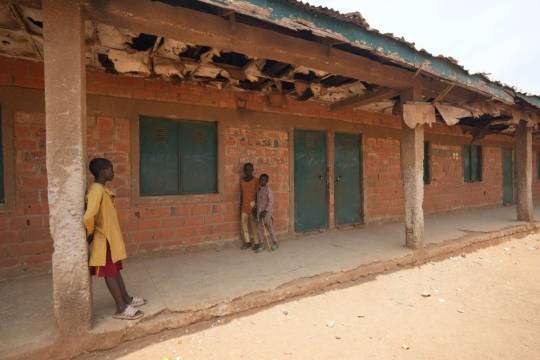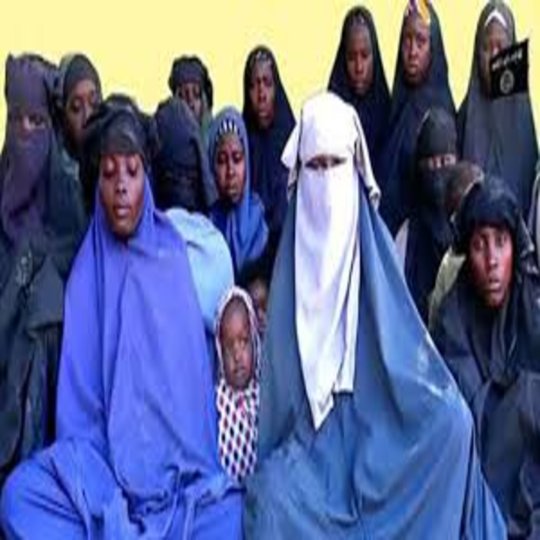#Boko Haram
Explore tagged Tumblr posts
Text


Dumisani Washington
Again for the BLM crowd, does this woman matter? Or is the mistreatment of a Black woman acceptable as long as she's an African Christian and her tormentors are Muslim?
#dumisani washington#boko haram#radical islamism#nigeria#bring back our girls#so how do we feel about radical islamists gaining a foothold in resource rich Africa?#people who still buy and sell Africans as slaves?
31 notes
·
View notes
Text
Im starting to see a pattern here:

#islam#Islamic#terrorism#Islamic terror#Islamic jihad#Hamas#taliban#Isis#hamas is isis#al qaeda#israel#secular-jew#jewish#judaism#israeli#jerusalem#diaspora#secular jew#secularjew#boko haram#Al asqa brigades#al qassam brigades#gaza#Samaria#judea#no ceasefire#never again#antisemitism#haram#kafir
27 notes
·
View notes
Text

"I can only assume the absence of mass outrage from Muslim countries over Boko Haram must be due to lack of coverage in cartoon form." -- @GSpellchecker (Stephen Knight)
#Stephen Knight#Boko Haram#islam#islamic violence#islamic terrorism#religion#hypocrisy#blasphemy#religion is a mental illness
20 notes
·
View notes
Text
One bedroom house design ideas with pop ceiling decorations nice rooms cute houses for rent. Affordable housing 1bhk home at Nta road before ozuoba in port Harcourt city rivers state Nigeria.
#rivers state#abuja#vietnam#wike#bangladesh#nysc#lagos#nigeria#youtube#portharcourt#Boko Haram#bandits#bandcamp#the band ghost#bangtan#debate#court#leaders#issue#bang chan#fraud#outer banks
2 notes
·
View notes
Text

Various armed groups have kidnapped hundreds of people, including 287 schoolchildren, across northern Nigeria in a series of alarming attacks since late February. The kidnappings are the latest indication of Nigeria’s spiraling security crisis, as communities continue to face severe threats from Islamist insurgents like Boko Haram in the country’s northeast and other criminal groups in the northwest.
On February 29, suspected Boko Haram insurgents abducted over 200 internally displaced people, many of them children, in the Ngala Local Government Area of Borno State.
Then, on March 7, criminal gangs known as “bandits” kidnapped 287 students, including many girls, at the government secondary school in Kuriga town, in northwestern Kaduna State. Two days later, bandits broke into a boarding school in Gidan Bakuso village in Sokoto State and kidnapped 15 children as they slept.
The abductions have continued. Most recently, on March 18, over 87 people were reported to have been kidnapped in Kajuru community in Kaduna State. (Human Rights Watch)
11 notes
·
View notes
Text
Israel Added to UN CHILD MURDER List, Alongside ISIS, Al Qaeda and Boko Haram
youtube
#israel#israhell#child murder#isis#israel is isis#al qaeda#boko haram#benjamin netanyahu#fuck netanyahu#netanyahu a criminal of war#bibi netanyahu#anti netanyahu#ausgov#politas#auspol#tasgov#taspol#australia#fuck neoliberals#neoliberal capitalism#anthony albanese#albanese government#zionistterror#zionazis#zionistcensorship#gaza genocide#israel is committing genocide#palestinian genocide#stop the genocide#israel is a genocidal state
6 notes
·
View notes
Text
The Harsh Reality: The Never-Ending Mass Kidnappings in Northern Nigeria
by Levi Wise Kenneth Catoe Jr.

Nine years after Boko Haram abducted 276 students from a girls school in Chibok, 98 girls are still being held by Boko Haram, and a slew of abductions have taken place since, revealing the utter failure of the Nigerian authorities to learn from the heartbreak of Chibok and, ultimately, to protect children, Amnesty International is saying. As part of the BOSS mission to uncover stories that impact the African Diaspora that go unreported, we chose to dive into this conversation, as well as how it’s been allowed to persist this long. I sat down with an inside source from Nigeria who chose anonymity.
Levi Wise Kenneth Catoe Jr.: Hello how are you?
Anonymous Source: I’m well.
LWC: I have a question for you.
AS: Ok.
LWC: Why are there mass kidnappings plaguing Nigeria currently?
AS: That’s over ten years now and it happens frequently in the Northern part of Nigeria.
LWC: What is it about I’m not familiar with?
AS: It's this terrorist group, disturbing Nigeria for years now. But they're camped in this desert in Nigeria. So they abducted over 400 Chibok school girls killed most of them and got the rest pregnant. The group is called the ‘Boko Haram’. [Note: Boko Haram is usually translated as "Western education is forbidden". "Haram" is from the Arabic حَرَام (ḥarām, "forbidden") and the Hausa word boko (the first vowel is long, the second pronounced in a low tone), meaning "fake", which is used to refer to secular Western education.]

LWC: Are people in your country scared? Are they Black or Middle Eastern Muslim groups? And why does it still plague Nigeria?
AS: They're probably from Chad or Somalia but they're Muslims though and some evil Nigerian politicians are the ones funding them. The government backs them up.
LWC: So, are you scared or are Nigerians living in fear of them?
AS: They're not in Lagos. They are in northern Nigeria and our troops have them under control.
LWC: Oh, ok good to know as far as Lagos.
AS: It got to a stage when they abducted some American tourists. And the American government sent some elite groups to carry out the rescue mission. It was successful though.
LWC: Oh ok, I wasn't familiar until I read about the abductions today; I was under the assumption that this was all recent.
AS: They mainly target the Hausas. It's really deeper than you imagine.
LWC: As far as what the government involvement?
A: Yes, they're protected by most of our corrupt government.
LWC: But the government in northern Nigeria is separate from Lagos, correct right?
AS: Yeah, but the northerners have the highest power in Nigeria.
LWC: OK now I see.
AS: That's one of our biggest problems in the country now. They feel like they own the country. And the Muslims so just imagine how brutal they'll be.

LWC: So the government feels they own the city or the Muslims?
AS: The Muslims do.
LWC: Oh, so in your opinion the Muslims own the country of Nigeria?
AS: Yes, it’s the Muslims that own the government and both Christians and Muslims are doing their very best to destroy the economy of Nigeria.
Levi Wise Kenneth Catoe Jr.
Editor, BOSS, NY
If you can, please consider supporting us just once from $1, or better yet, support us every month with a little more. Thank you.
contact me at [email protected]
We at BOSS are also interested in partnerships:
contact me at [email protected]
#black history#nigeria#Chibok school girls kidnapping#boko haram#world news#breaking news#news updates#al jazeera english#african diaspora#west africa#news of the world
2 notes
·
View notes
Text
Text.
#i'm probably not the person to be laughing at islamophobia considering I'm not muslim#and this is just online so there's enough distance to not be scary#but islamophobes don't care whether or not you are muslim in the first place#you kinda get used to being called a terrorist supporter and ISIS bride is the thing#and you start to find some of it really funny#like it's endlessly funny how Zionists keep seeing Hamas in their street‚ their cereal bowl and cat's litter box#and the Hamas=ISIS has always been amusing because IS hates Hamas#''do you condemn Ham—?'' ISIS: ''SO GLAD YOU ASKED FUCK THOSE GUYS—''#i was prepared for the natural evolution of Hamas=ISIS=Taliban#again hilarious to anyone who sees the Middle East as other than Terrorist Blob#ISIS and Taliban are currently too busy fighting each other like cats to bother anybody else#but yday a friend of mine got a message calling her a ''racist Hamas Boko Haram terrorist''#BOKO HARAM#how tf is BOKO HARAM going to#THAT'S ON THE OTHER SIDE OF AFRICA#I'm just. dyyiiinngg#💀💀💀#man I wish us non-Muslims could get the online Islamphobic bile. not only does it not hurt us it's also mostly hysterical#knee of huss
1 note
·
View note
Text

Source
179 notes
·
View notes
Text

This book is written in Latin by Adriani Rilandi In 1695 describing in great detail, what was then called Palestine. He visited the entire region, ~2,500 towns, and recorded a census.
Rilandi was a geographer, cartographer, traveler, philologist, he knew several European languages, Arabic, ancient Greek, Hebrew.
Here are the primary facts & conclusions:
* The country is mainly empty, sparsely populated, the main population is Jerusalem, Akko, Tsfat, Jaffa, Tveria and Gaza.
* Most of the population were Jews. That's right. Jews. Everyone else is Christians, aside from very very few Muslims, mostly Bedouins.
* The only exception is Nablus (now Shchem), where approximately 120 people from the Muslim family Natsha and approximately 70 "shomronims" (Samaritans).
* In Nazareth, the capital of Galilee, lived approximately 700 people - all Christians.
* In Jerusalem there were about 5,000 people, almost all Jews and a few Christians.
* In 1695, everyone knew that the origin of the country was Jewish.
* There is not a single settlement in Palestine that has Arabic roots in its name.
* Most settlements have Jewish originals, and in some cases Greek or Roman Latin.
* About 550 people lived in Gaza, half of them Jews and half Christians.
Jews were successful in agriculture, especially in vineyards, olives and wheat, Christians were largely engaged in trade and transportation.
The book completely refutes theories about "Palestinian traditions", "Palestinian people" and leaves almost no link between the land and the Arabs who even stole the land's Latin name (Palestine) and took it for themselves.
And now "Free Palestine" people, remind me, please, why are you trying to free Palestine from it's original indigenous people (Jews) and give it to colonizers and occupiers?
#Palestine#Palestinian#Hamas#israel#secular-jew#jewish#judaism#israeli#jerusalem#diaspora#secular jew#secularjew#islam#Isis#boko haram#al shabab#muslim brotherhood#Akko#galilee#Jaffa#Gaza#Israelis#judea#Samaria#JUDEAN's#adrinani rinaldi
62 notes
·
View notes
Text
How things should be

How things really are

#if you don't speak against them#that means you support them#end of the story#antisemitism#terrorism#hamas is isis#boko haram#irgc terrorists#irgc#free iran from irgc#meme#lotr memes
1 note
·
View note
Text
US: No Evidence USAID Finances Boko Haram
US: No evidence USAID finances Boko Haram as US Embassy refutes allegation There has been commotion threatening peaceful international relations between Nigeria and the United States of American over the financing of one of the most dreadful and deadliest terrorist groups in the world−Boko Haram. The United States, refuting the claim made by political class of Nigeria, through her ambassador to…
#Abuja#Boko Haram#Nigeria Governors Forum (NGF)#Scott Perry#The United States Ambassador To Nigeria Richard Mills#The United States President Donald Trump#USAID
0 notes
Text
BREAKING: Boko Haram Terrorists Attack Nigerian Army Base, Kill Three Soldiers, Steal Gun Trucks In Borno
BREAKING: Boko Haram Terrorists Attack Nigerian Army Base, Kill Three Soldiers, Steal Gun Trucks In Borno A source said that the terror group razed many buildings and took away two gun trucks during the attack. Boko Haram/Islamic State West Africa Province (ISWAP) terrorists have killed three Nigerian Army personnel following an attack on a military base in Borno State. SaharaReporters gathered…
#Army#Attack#Base#Boko Haram#Borno#BREAKING#gun#in#Kill#Nigerian#Soldiers#steal#terrorists#three#Trucks
0 notes
Text
How USAID Funded Boko Haram, Other Terror Groups, By US Congressman
A United States Congressman, Scott Perry, has alleged that the United States Agency for International Development, USAID, funded terrorist organisations globally, including Boko Haram sects. Mr Perry, a Republican lawmaker representing Pennsylvania, made the allegations during the inaugural hearing of the Subcommittee on Delivering on Government Efficiency on Thursday. Recall that United States…
0 notes
Text
Boko Haram Kills Nigerian Army Commander, Two Senior Officers, 17 Soldiers
Boko Haram Kills Nigerian Army Commander, Two Senior Officers, 17 Soldiers In Fresh Attack On Borno Military Base Boko Haram terrorists have killed over 20 Nigerian Army personnel, with many still missing following an attack on a military base in Borno State. SaharaReporters gathered that for several hours on Friday, January 24, 2025, the terrorists attacked the 149 Battalion in Malam-Fatori,…
0 notes
Text
Foiled armed assault on Chad presidential complex leaves 19 dead
One person was killed and 18 attackers were eliminated in an attack on the presidential palace in Chad, local media reported on Thursday.
On Wednesday evening, Al Arabiya TV channel quoted sources as saying that militants of the Boko Haram terrorist group carried out the attack near the presidential palace in the Chadian capital N’Djamena.
Government spokesman and Foreign Minister Abderaman Koulamallah told the agency:
“Of the 24 special forces fighters who launched the attack, 18 were killed and six wounded, while we lost one man and three wounded.”
Chadian President Mahamat Idriss Déby was at the presidential palace at the time. Later, Chad’s Infrastructure Minister Aziz Mahamat Saleh said the situation in the country was under control. A security source in the country told the media:
“Chadian security forces are in full control of the presidential palace area.”
Boko Haram is a Nigerian group founded in 2002 with the aim of establishing an Islamic state in Nigeria, linked to al-Qaeda. In its early years it carried out attacks mainly in Nigeria, but attacks have since spread to Cameroon, Niger, Chad. The group has claimed responsibility for major terrorist attacks in the region, including attacks on schools and rescue workers.
Political crisis in Chad
Chad has experienced an unstable political situation in recent years. Since 2021, the country has been in a transitional period, which began with the coming to power Mahamat Idriss Déby, the son of President Idriss Déby who was killed in battle with rebels. Chad held presidential elections last May, which Mahamat Idriss Déby won with 61 per cent of the vote. The leader of the opposition Transformers party, Succes Masra, came second with 18.54 per cent.
On December 29, the country held its first parliamentary elections in 13 years, as well as local elections. They were expected to be a step towards ending the transition period. The opposition called for a boycott of the vote due to possible falsification of results. Preliminary results will be published by January 15.
Read more HERE

0 notes